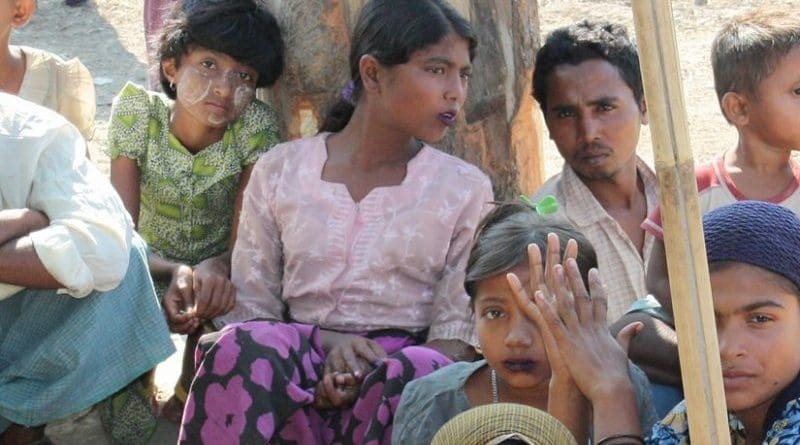Prospects From Canada On Rohingya Issue In Upcoming UNGA – OpEd
The 76th session of the United Nations General Assembly (UNGA) is going to be started on September 14, 2021, where the Rohingya issue is expected to be covered. Rohingya crisis has been swinging in the wind without a solution for the last four years. The world has been facing refugee crisis in Rwanda in 1994, ethnic cleansing against Bosnia and Serbia between 1992–95, and crisis in Sudan from 2003-2010, the massive genocide against Rohingyas in 2017. However, the failure to find a durable solution–repatriation through ensuring a safer environment for returning– is protracting the humanitarian crisis in the case of the Rohingya crisis. Canada, a principal supporter of human rights, always actively looking for mitigating the state-sponsored crisis through raising funds, supporting the host country, and playing a crucial role in the multilateral fora. In the upcoming UNGA session, Canada is expected to actively raise the issue to find a durable solution.
Since August 2017, more than 740,000 Rohingya fled Myanmar as a result of attacks and repression which they are still facing at home. In responding to the crisis, Canada has played a leadership role taking a threefold strategy. The strategy is focused on first, assistance to ensure the basic humanitarian needs of the forcibly displaced Rohingya refugees both in Bangladesh and Myanmar; second, ensuring political stability in Myanmar, justice for the Rohingyas and accountability for the crimes against humanity; and third, collaborating with the international community. However, the response of the international community including Canada has been falling short.
According to the Joint Response Plan (JRP), the humanitarian assistance for the Rohingya refugees has been declining alarmingly. From 2017-2019, the disbursement was ranged between 72 and 75 percent of the total requirement which abridged to 65 percent in 2020. As of August 2021, only 34 percent of the total requirement for the Rohingya refugees has been funded against the overall need of US $943 million. The falling proportion of disbursement and funding will critically affect both the refugees and host communities in Bangladesh. So far, Canada has contributed USD 15.9 million to the Rohingya community; however, to meet the need of the total requirement, they need to increase their contribution.
The deteriorating political situation in Myanmar after the February coup has been critically trammeling the possibilities for repatriation. With the renewed battle between the shadow government and military Junta, the Rohingya refugees are going to face a protracted refugee situation in Bangladesh. Along with this, the world community has failed to adequately address the “genocide” against the Rohingya people. More than 43,000 Rohingya Muslims were feared death and their houses were burnt. Using ‘rape’ as a means of “ethnic cleansing”, over 81,000 Rohingya women and girls were impregnated. But unfortunately, the perpetrators both from the civilian Buddhist monks and the Tatmadaw are yet to be brought under law. When the state is against its people, it is the responsibility of the world community to ensure justice and accountability for them. In this regard, Canada needs to consider earnest moral and financial support for the Rohingya genocide case at the International Court of Justice to ensure justice for the voiceless and persecuted Rohingya refugees.
The Rohingya people did not receive equal ‘humanitarian attention’ compared to the cases of Afghanistan, Iraq, Somalia, Rwanda, Sudan, or Bosnia. Whereas it’s the responsibility of the UN to ensure world peace and stability, four years have already been passed to find a durable solution for the Rohingya refugees. The UNGA, with its mass representation of the world leaders, could take the leading role in addressing the Rohingya crisis. The world leaders especially the great powers including the US, UK, and Canada–the proponents of human rights and democracy– need to take genuine efforts to resolve the Rohingya crisis. A strong resolution in the UNGA session will not solve the crisis overnight; however, it will keep the hope alive of over 1.2 million forcibly displaced Rohingyas to be repatriated.
To conclude, the Rohingya crisis is a “global tragedy” and complexed situation that needs a combined worldwide response. Canada needs to take the leading role in pressing the international community in burden-sharing and in finding a plausible solution for the Rohingya refugees in the upcoming UNGA. They should advocate for the promised international role to better respond to the crisis.
*Shaikh Abdur Rahman is a research assistant at Central Foundation for International Strategic Studies (CFISS) based in Dhaka, Bangladesh. He is a graduate of the University of Rajshahi, where he focused on human security issues, Economic Diplomacy, and South Asian Politics; his work has appeared in modern diplomacy, Eurasia Review, International Policy Digest, and many other publications.

